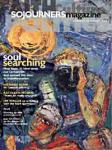Definitional books come around about once a decade. Such books so describe the reality of the age in simple terms that the impact is felt from after-dinner conversations to federal policy discussions. Barbara Ehrenreich’s Nickel and Dimed: On (Not) Getting By in America will likely join this pantheon.
Ehrenreich, a masterful journalist, tells her own story and the stories of the people she met on her journey to find out how people in the service sector are able to survive when income doesn’t match expenses. Challenged by a magazine editor to investigate her wonderings on this topic, she "went undercover." The result is a very readable description of life’s reality for those often invisible—the housekeepers and fast-food clerks (often the same person)—who are "(not) getting by in America."
Ehrenreich chose three U.S. cities for her investigation—Key West, Florida; Portland, Maine; and Minneapolis. In each city, she applied for jobs and apartments using her own name, but not her doctorate degree or writing vitae. She simply said she was a homemaker re-entering the job market.
In each city Ehrenreich found work—several jobs, actually, since that’s what was required to pay for housing. She discovered that the economy functions differently in the bottom quintiles than in the professional class with which she is more familiar. In several of her jobs, the workplace "held" the first paycheck in order to ensure that she would give notice before quitting. But if the first paycheck is withheld, it is difficult to pay the required deposit and first month’s rent required in most low-rent situations. This double bind—needing more money up front and having money earned tied up in other places—is not uncommon in low-wage culture.
In Portland, Maine, Ehrenreich scrubbed floors and dusted the homes of the rich and famous as a maid service employee. On weekends she was a dietitian at a home for Alzheimer’s patients. And though she regularly worked long hours, she was barely able to pay for the tiny half-trailer in which she lived. The cost of a trip to the Laundromat or gas station became an all-consuming worry.
AS SHE ARRIVED in the Twin Cities, Ehrenreich’s enthusiasm for her quest was beginning to wane. As an "associate" at Wal-Mart, serving "guests" in the women’s clothing section, Ehrenreich captures the complicated relationship between employer and employee at this place in the economy. While many co-workers were unhappy with the disrespectful treatment by management and "guests," they generally defended the workplace in much the same language as the required orientation materials. Internalized oppression is alive and well in retail America.
With these Wal-Mart employees, Ehrenreich finally gives voice to a strategy for change she had kept to herself throughout the project—organizing a union. (She had not mentioned this previously, since she realized that she would be leaving each workplace within a month and did not want to stir up people’s hopes and fears without being willing to see it through.) With several other employees in one-on-one encounters, Ehrenreich wondered aloud if a union might help with the employee’s problems in the workplace.
The United Food and Commercial Workers Local 789 in the Twin Cities is engaged in just such a campaign. Local 789 already has organized many of the grocery employees of the major chains in the Twin Cities—Cub Foods and Rainbow Foods. But now the "superstores" such as Sam’s Club (a Wal-Mart sibling) and SuperTarget are adding grocery departments, and these undercut the gains in the grocery sector.
"Barbara Ehrenreich hit it right on the head by pointing out how society puts little value into service jobs; many of us don’t bother to find out if that clerk is making a living wage, but we should," says Local 789 organizer Bernie Hesse. "With our economy in a service sector mode, can we afford to ignore the retail worker as a valuable piece in the new economy?"
Ehrenreich’s offering questions whether the retail worker can long survive in the current circumstance. Unable to maintain good health practices, a constant address, or consistent family life, as well as often balancing several non-living-wage jobs, the employees are vulnerable—to sickness, bad choices, and despotic managers. Changes in public policy are needed to ensure the rights of these workers.
Throughout the book, Ehrenreich acknowledges that she is involved in what amounts to more a game than a close approximation of the real experience of her co-workers. She comes into the circumstance with her health, her education, and the knowledge that it is a short-term commitment to downward mobility. She likens her situation to someone in a temporary witness protection program—going to a new place and trying to live under the radar.
Still, her insightful reflection on the struggles of the most vulnerable working populations in the country will stretch most who read her book. She treats co-workers with respect, usually, and creates a sympathetic picture of workplace struggles. But she does raise the concern that, in a system that devalues their labor and worth, these people have a bleak future—unless by successful organizing they are able to uphold their dignity, stretch their imaginations, and increase their economic options.
Bob Hulteen is the director of the Twin Cities Religion and Labor Network and lives in Minneapolis.

Got something to say about what you're reading? We value your feedback!